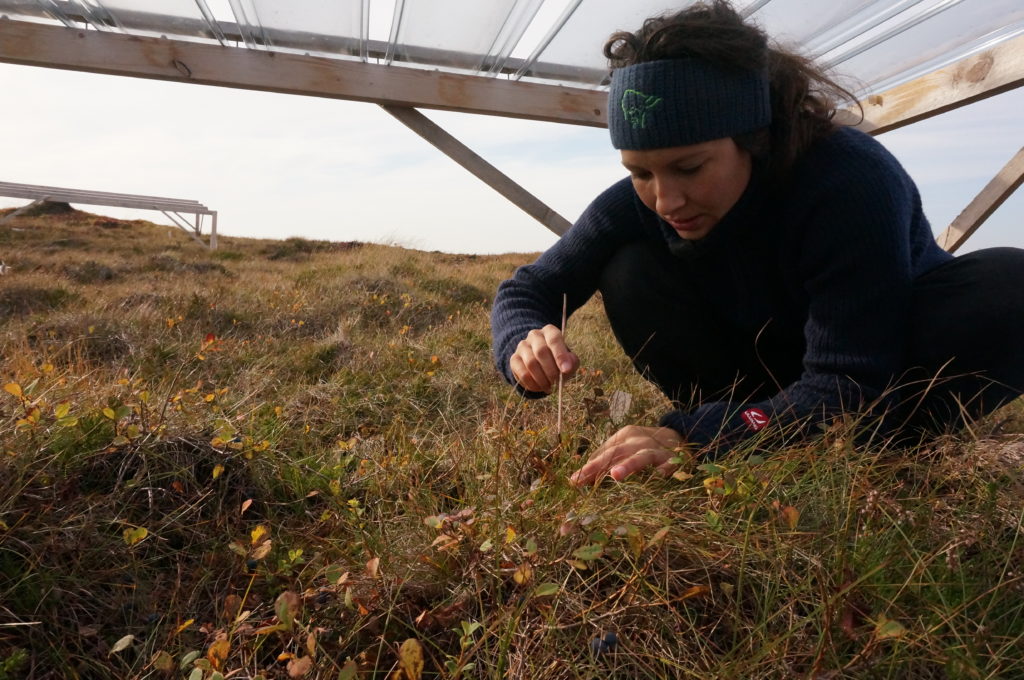Hi, my name is Siri, and I’m currently a PhD student at the University of Bergen, Norway. My PhD project tries to answer how the cultural landscape – and more precisely the Atlantic heathlands – are coping with a more unstable weather regime. These heathlands are found along the European west coast, and especially in Norway they are normallyt soaking wet all year round due to high precipitation levels. With the ongoing changes in climate, we observe unusual weather events with an increasing frequency. This year, Norway is experiencing a major drought, and farmers have already started to slaughter their cows because there’s not enough grass for them (and Norway is normally very good at growing grass). Also the heathlands are struggling, and especially the evergreen species which are dying – and turning into very potent fuel for wildfires.
I have two experiments in my project, with field sites spread along a 750 km latitudinal gradient on the Norwegian coast. The first experiment study succession in drought damaged heathlands with and without fire, whilst the second experiment use fixed rainout shelters to create a drought so we can study the drought processes in a controlled setup. One of my strongest scienti fic interests is how direct and indirect human impacts, such as landuse changes and climate changes, are shaping ecosystems across natural gradients.
fic interests is how direct and indirect human impacts, such as landuse changes and climate changes, are shaping ecosystems across natural gradients.
A really great thing about the plant functional traits course is that it offers training in the whole process of trait-based ecological research methodology, from planning an experiment and collecting data, to data managing, analysing and interpreting, and communication of results. I’m excited about going through this process with data collected on Svalbard, and to do so together with an international student group. The Arctic is (sadly) a very interesting part of the world to study as ongoing climate changes are happening much faster here than anywhere else in the world. In many aspects, the consequences of climate change are also more serious in these systems.
Two years ago, I spent the summer on Franz Joseph Land, which is a Russian archipelago north east of Svalbard. To observe how this area that lies cold and dark for half a year explode with life in summer made a strong impression, so I’m also very much looking forward to experiencing the Arctic summer again.
I think most people on Svalbard, both locals and tourists, accept that the planet is warming due to human caused climate changes. However, I’m not sure if people consider themselves to be responsible, or if they feel obliged to alter their behaviour in any way.
Most people in Norway accept that climate changes are happening and that they are mainly human caused. Also, the government is considering the challenges of climate change, even if it can be debated if they are doing enough (Norway is an oil nation). People that don’t believe that climate change is happening, or that deny that it is human caused, are present in the public debate, but not by big numbers.